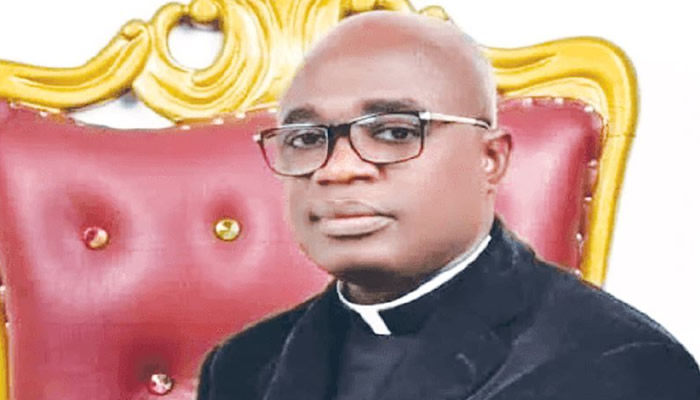Benue State Governor, Rev. Fr. Hyacinth Alia, expressed his satisfaction with the recent local government elections, emphasizing that the results reflected the political maturity and democratic engagement of the state’s residents. Following the official announcement from Richard Tombowua, the Chairman of the Benue State Independent Electoral Commission (BSIEC), Alia noted that the All Progressives Congress (APC) secured victory in all 23 chairmanship and 276 councillorship seats. The governor issued a statement through his Chief Press Secretary, Kula Tersoo, thanking the voters for their peaceful participation and support, commending the orderly process of the election as a collective affirmation of the values of peace and unity that are crucial for state development.
Governor Alia underscored that the overwhelming endorsement of the APC signals the populace’s confidence in his administration and its vision for Benue’s future. He pledged to fulfill his government’s promises, aiming to foster a prosperous environment where all individuals have opportunities to thrive. Alia congratulated the successful candidates in the elections and encouraged those who were not elected to collaborate with his government to advance the interests of the state. This call for unity and constructive engagement reflects his administration’s strategic approach to governance, positioning cooperation as essential for continued progress.
However, the election results have not been without controversy. Opposition leaders, particularly Senator Abba Moro of the Peoples Democratic Party (PDP), challenged the integrity of the election, labeling it a “rape of democracy.” Moro asserted that numerous reports from his senatorial district indicated that the elections were not conducted in several areas, citing the absence of election materials and BSIEC officials. He expressed his disappointment with Governor Alia, accusing him of failing to adhere to the transparency standards he advocated during his campaign. In response to the perceived electoral malpractice, Moro announced that the PDP would explore all legal options to contest the results, underscoring his commitment to uphold the democratic process.
In counterpoint to Moro’s assertions, Richard Tombowua affirmed that the election was conducted fairly and without significant issues, noting that five political parties, including the APC, PDP, Labour Party, Social Democratic Party, and the All Progressives Grand Alliance, participated in the election. Despite the troublesome allegations, the BSIEC Chairman maintained that the elections were largely peaceful, a sentiment echoed by the Chairman of the Inter-Party Advisory Council and Labour Party Chairman, Ibrahim Idoko. Idoko credited BSIEC for its efforts to ensure a trouble-free electoral process, though he indicated that the Labour Party would undertake a detailed review of the election outcomes before finalizing its stance.
Alia’s call for unity among political parties underlines his belief in a collaborative future for Benue State. He interpreted the APC’s electoral victories not merely as a party win but as a collective endorsement from the citizens for his administration’s vision and policies. By urging all political stakeholders to prioritize state development over partisan conflicts, Governor Alia seeks to foster an environment where harmonious relationships can flourish, enabling a concerted effort toward shared goals, thus reinforcing democracy and political stability in the region.
As the Benue State electoral landscape evolves, the contrasting views surrounding the recent local government elections highlight the complexities of political engagement in Nigeria. While the governor remains optimistic about building on the electoral success to promote state unity and growth, the opposition’s discontent points to underlying tensions that challenge the democratic framework. The reactions from various political actors illustrate the ongoing struggle for representation and transparency, a fundamental aspect of democratic governance that will continue to shape future electoral practices in the state.


